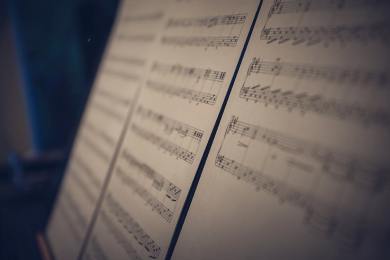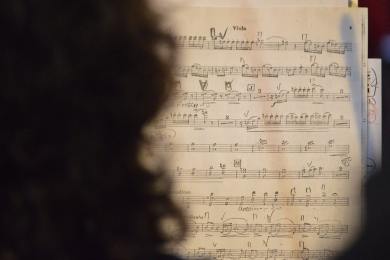When it comes to music theory, there is a bit of a controversy over whether or not this is something musicians need to learn. In fact, some musicians will go as far as to say that learning music theory makes you less creative. But is this really the case?
As a general rule, music theory does not negatively impact creativity. In fact, there are various ways in which music theory has been proven to help creativity by providing musicians with the tools and knowledge to push themselves past their creative limits.
Whether you’re a serious musician or a casual composer, you may be interested in learning more about your craft, but not at the sacrifice of your creativity. Keep reading to learn about whether music theory makes you less creative, and what you can expect to learn about music if you decide to take that path.
Does Learning Music Theory Make You Less Creative?
It’s a common misconception that any type of formal learning will box you in and hinder your creativity. This is an especially popular myth in the music world when it comes to music theory.
As we learn, there are usually different sets of rules that come with the material that is taught. In music theory, those rules are usually centered around harmony, melody, and rhythm. Some artists believe that as those rules are taught, creative freedom is taken away.
However, that couldn’t be farther from the truth.
In fact, music theory doesn’t make you less creative but it may do the opposite.
While it was believed for the longest time that creativity was an inherent and inherited characteristic, it has long been proven that creativity comes from divergent thinking, gained knowledge and experience, and the ability to communicate with others.
Learning music theory may not be for everyone, but it is considered to be extremely useful to anyone who wants to study music and become a better musician.
While there are “rules” that are taught when it comes to harmony and rhythm, these rules don’t always have to be followed. In fact, creativity in music is all about breaking those rules. But you can’t break them if you don’t know what they are.
What is Taught in Music Theory?
Music theory is the study of music and its possibilities. This may seem to some to be a bit constraining, but in reality, it’s a study of musical language and the contemplation of music.
Essentially, it is learning about the methods, patterns, and language musicians use to make music and what constitutes music.

Typically, you will start out with the fundamentals, learning terms like harmony, melody, rhythm, pitch, tone, and texture. Eventually, you’ll move on to identifying different compositional elements and improving critical listening skills.
Some of the things you can expect to learn from music theory include:
- How music works
- Core music terms and fundamentals
- Music notes and the relationship between them
- Octaves
- Musical scales and their functions
- The seven different music modes
- Evoking emotion and expression through music
- Improving musical development
- Building chord progressions and melodies
- Song arrangement
At its core, these elements teach musicians the basics to understand and express through the language of music.
Does Music Theory Make You A Better Musician?
What if you’re a casual musician who can already read sheet music and is interested in getting better at producing your own music? How does learning music theory help?
The concepts explored in music theory help musicians navigate music easier by giving names to ideas and explaining how music works.

For example, let’s say you’re baking a cake. Sure, you can follow the recipe and come up with a pretty decent dessert. But what if you want to change things up? What if you want your vanilla cake sweeter or fluffier?
Maybe you’d like to add lemon or chocolate? Your baking and creativity suddenly become hindered because you don’t know what the ingredients do and why they are added together in that manner.
The same thing applies to music. Although you don’t necessarily need to know music theory to physically play an instrument or sing a song, learning the concepts will give you a better awareness and understanding of music so that you can compose your own music or alter a piece to make them better suited to you.
Final Thoughts
Hopefully, this article gave you a better understanding of how music theory impacts creativity. While it isn’t required to learn music theory to be a musician, many can benefit from learning some aspects of music theory.
The concepts and ideas taught and explored in music theory can help musicians channel their creativity and think outside of their comfort zone.

1 thought on “Does Music Theory Make You Less Creative?”
Comments are closed.